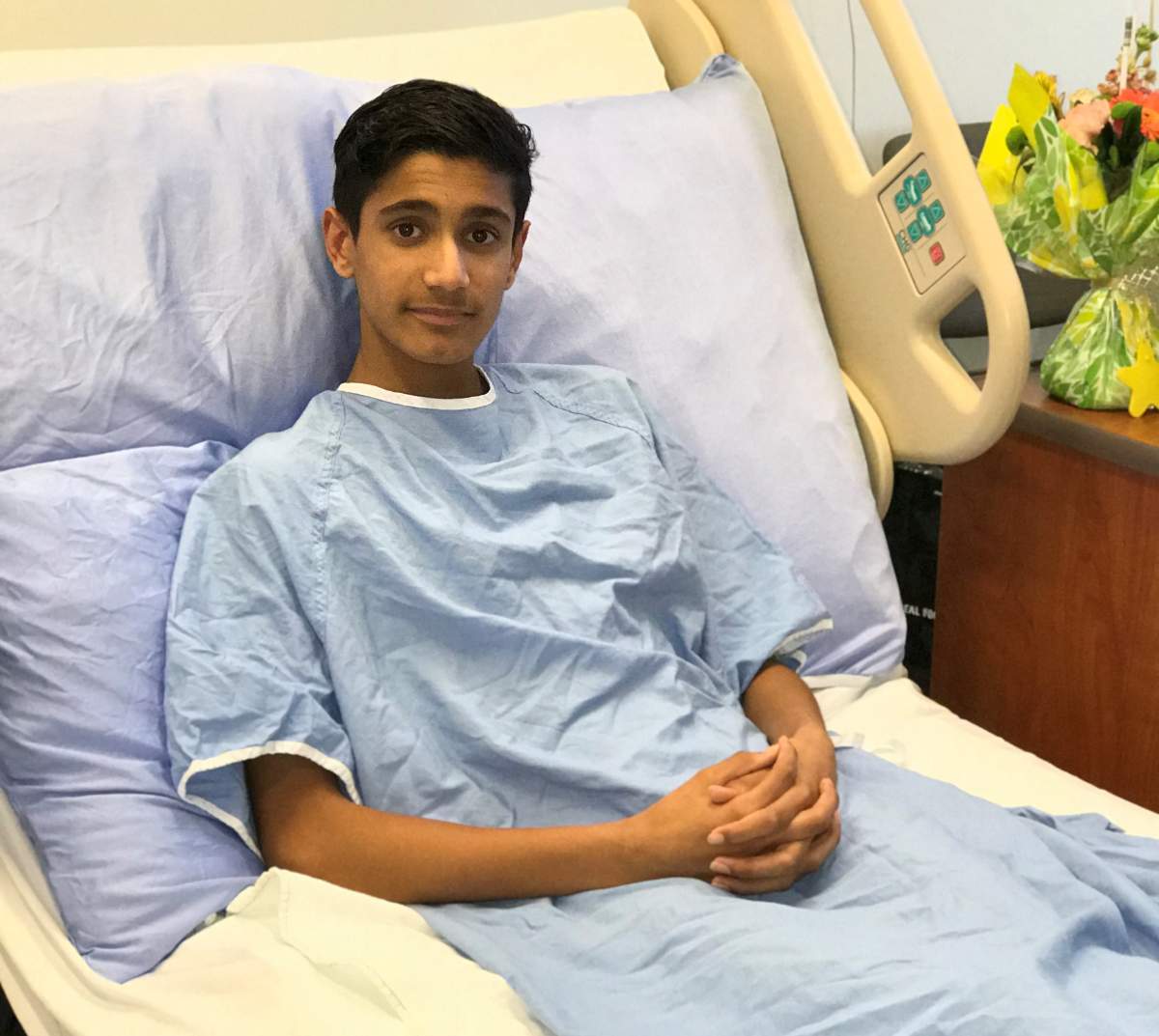The B.C. teen whose life was saved by two teachers is thankful they knew CPR, and that his high school had an automated external defibrillator.

On Wednesday, Jan. 30, Dilshaan Dhaliwal went into cardiac arrest and collapsed in the gym at Southern Okanagan Secondary School in Oliver. Two teachers, Steve Podmorrow and Mike Russo, rushed to help, performing CPR on the Grade 8 student and using the school’s automated external defibrillator (AED).
Dhaliwal, 13, was later rushed to South Okanagan General Hospital before being flown to B.C. Children’s Hospital.
“If it wasn’t for the AED machine and the teachers being able to jump in so quickly without any thinking and starting CPR and using the AED, I probably wouldn’t be alive right now,” said Dhaliwal, who was released from hospital this week.
“If Dilshaan didn’t receive CPR right away and help from an AED, he likely would have died,” said Dr. Sanatani, who is the head of cardiology at B.C. Children’s Heart Centre. “Every second counts.

Get weekly health news
“When nothing’s being done, the survival rate of someone suffering from cardiac arrest decreases by 10 per cent with every passing minute.”
Dhaliwal reportedly has congenital heart disease.
The Heart and Stroke Foundation says congenital heart disease is a condition a person is born with. The word congenital means “present at birth.”
- A congenital heart defect happens when the heart or the blood vessels near the heart don’t develop normally before birth.
- Congenital heart defects are present in about one per cent of live births. They are the most frequent congenital malformations in newborns.
- Survival of children with congenital heart disease has greatly improved thanks to medical advances in Canada and around the world.
- Better quality care as adults can also help avoid or manage complications and live life to its fullest.
WATCH BELOW: (Aired Nov.19, 2018) The importance of being CPR certified

Dhaliwal will reportedly undergo open-heart surgery for aortic valve stenosis at the end of February. The surgery will repair his heart valve to ensure his heart can pump enough blood to his body.
Dhaliwal had reportedly undergone open-heart surgery for his heart defect as a baby. Since then, the B.C. Children’s Heart Centre has monitored him as he still had another abnormality.
Meanwhile, Dhaliwal hopes everyone takes the time to learn CPR.
“It’s really important to have someone ready to help,” he said. “CPR and AEDs are useful for everyone to know about because they could save someone’s life.”


Comments